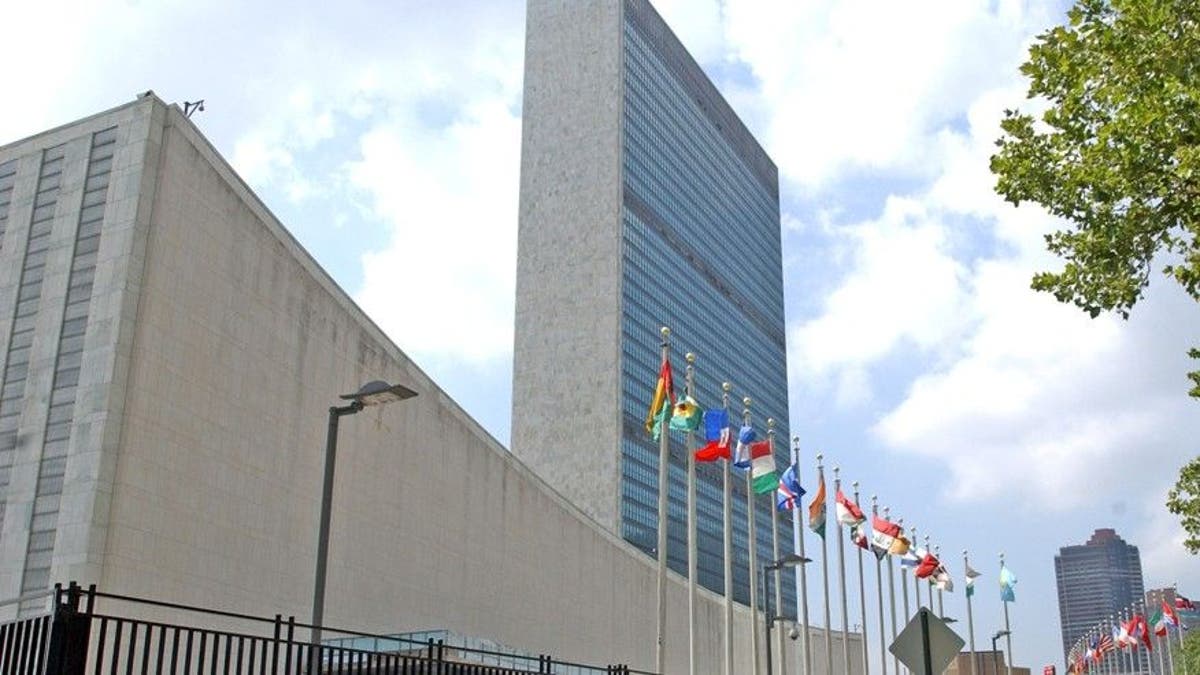
The United Nations headquarters in New York.
While the United States and many European countries continue to oppose the anti-Israel boycott movement because it imposes a double-standard and harms peace efforts, the United Nations is set to engage in full-throated BDS by the end of this year.
BDS, or Boycott, Divestment and Sanctions, is a pressure-point campaign that seeks to impose conditions on the Jewish state outside of negotiations between the Palestine Liberation Organization and the Israeli government. Many of the BDS demands, including the “right of return” for all Palestinians everywhere, would mean the abolition of a Jewish state.
This week's first visit to Israel by Antonio Guterres as UN Secretary-General is a great opportunity for him to reverse the UN’s misguided singling out of Israel for punishment.
Many of the BDS demands, including the “right of return” for all Palestinians everywhere, would mean the abolition of a Jewish state.
Last week, The Washington Post reported that Jordanian Prince Zeid Ra’ad Al Hussein, the UN high commissioner for human rights, plans to publish a “blacklist” of U.S. and other companies operating in the disputed territories. The blacklist is UN-sanctioned BDS.
The West Bank, East Jerusalem, and the Golan Heights—the territories in dispute—are subject to the negotiating process between Israel and the Palestinian leadership. By attempting to blacklist Israel companies and U.S. companies like Caterpillar, TripAdvisor, Priceline.com, and Airbnb, the UN high commissioner is discouraging bilateral peace talks.
The UN’s unilateral move prompted a sharp rebuke from the U.S. ambassador to the world body, Nikki Haley, who said: “Blacklisting companies without even looking at their employment practices or their contributions to local empowerment, but rather based entirely on their location in areas of conflict, is contrary to the laws of international trade and to any reasonable definition of human rights. It is an attempt to provide an international stamp of approval to the anti-Semitic BDS movement. It must be rejected.”
To Haley’s credit, she called out the long-standing discriminatory targeting of the Jewish state by the UN Human Rights Council that originated the blacklist plan in March 2016.
Nearly half of the U.S. states and many Europeans governments—and financial institutions—have over the last two years recognized the dangers of BDS and its anti-Jewish nature. U.S. states have passed anti-BDS legislation that bar state business with companies that engage in boycotts of Israel.
Just last week, the city government in Frankfurt, Germany, passed an initiative to “ban any municipal funding or the renting of rooms for any activities of groups or individuals who support the antisemitic BDS movement. We also instructed our city-owned companies and called upon private landlords to act in the same way,” said the city’s Deputy Mayor Uwe Becker.
He went further and noted that: “The BDS movement does not only strongly resemble the ‘Don’t Buy from Jews’ argumentation of former times of the National Socialists, but the movement is built on the same toxic ground and it is poisoning the social climate in the same dangerous way.”
Scores of banks in France, Germany, Austria and Ireland have terminated accounts held by BDS organizations.
All of this helps to explain why the UNHRC’s BDS activity damages the conditions for peace.
What can the US and Europe do? The U.S. along with many European countries sit on the 47-member Human Rights Council. The UN’s economic warfare targeting Israel and companies that trade with it should prompt a counter-attack that includes the U.S. and morally-principled countries resigning from the UNHRC.
A joint announcement at a press conference by Haley with her counterparts, including the German and British ambassadors, warning of a mass resignation if the blacklist is implemented, would be a good first move. After all, many U.S. and EU companies will be directly affected by the counter-productive and discriminatory blacklist.
Put simply, the UNHRC should not be in the business of using the tools of economic warfare to bring about precisely the result it claims it wishes to avoid: a powerful setback to the Israel-Palestinian peace process.
